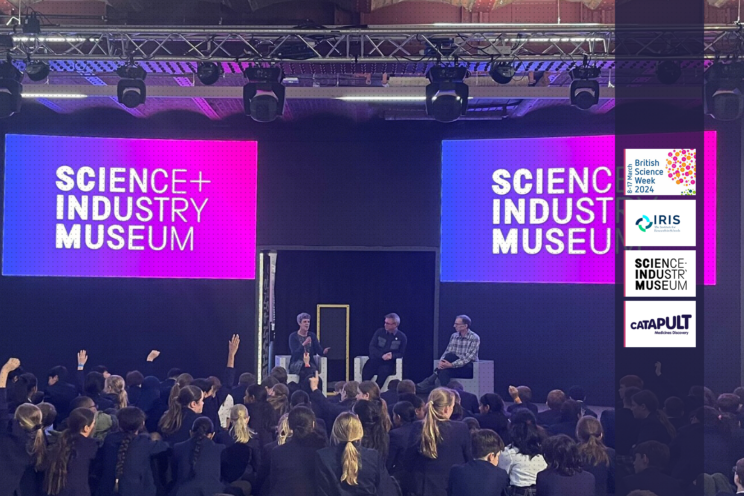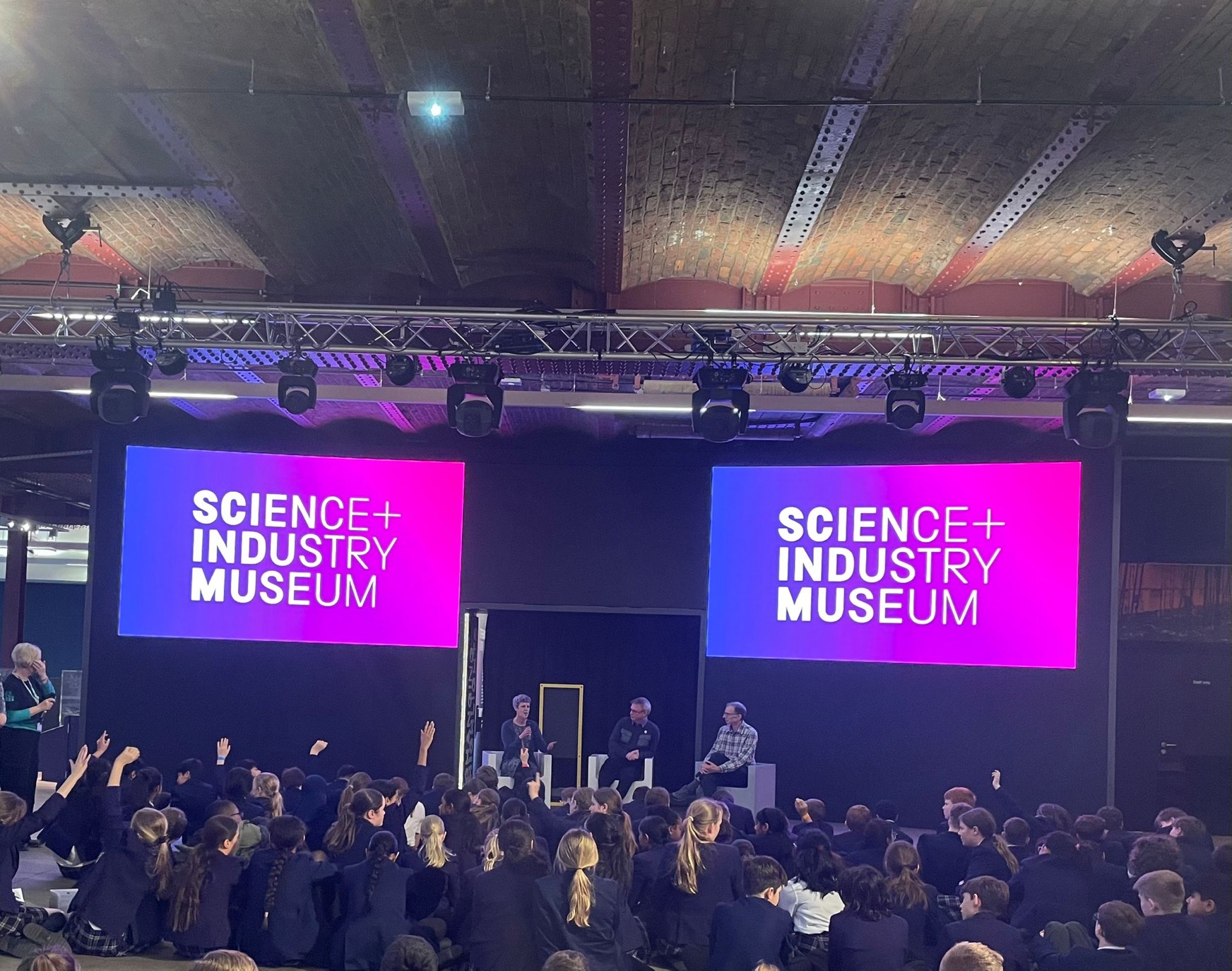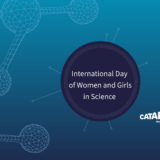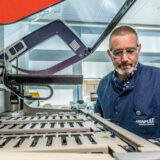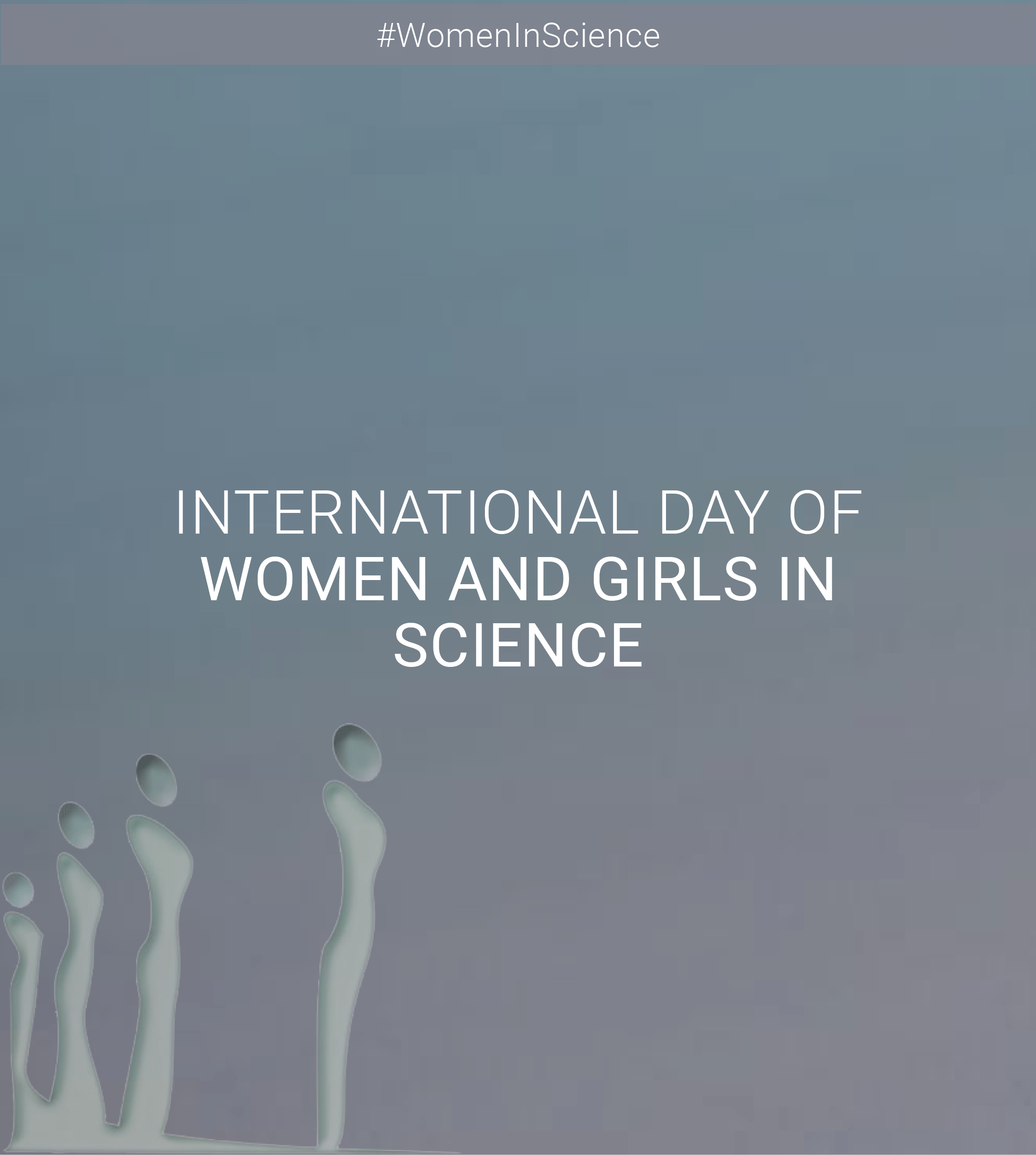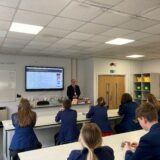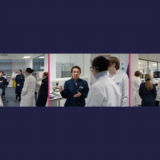Medicines Discovery Catapult (MDC) is celebrating thirty years of British Science Week (BSW), which is taking place 8-17 March.
Organised by the British Science Association, BSW is a 10-day celebration of all things science, technology, engineering and maths (STEM). It encourages the UK to shine a spotlight on the great achievements in this space and highlights the opportunities available for more people to get involved in STEM.
The shortage of people with the necessary STEM skills impedes improvements to productivity, economic growth and the fulfilment of medicines discovery. If the UK is to achieve its ambition of becoming a ‘science and technology superpower’ by 2030, urgent action is needed. In 2018, the Royal Society published evidence stating the UK’s STEM skills gap was estimated to cost £1.5bn a year. At present and over the longer term, the lack of diversity undermines the UK’s ability to innovate and respond to emerging challenges, as young people turn away from careers that could be rewarding, improving their lives and the communities around them.
To get more young people to consider jobs in our fascinating sector, MDC partnered with the Science and Industry Museum in Manchester as part of BSW, joining a STEM Q&A session on 13 March to engage pupils from a variety of primary and secondary schools in the North West. They heard from one of our experts, Sarah Brockbank, Strategy Leader for Complex Medicines at MDC, about what inspired her to work in science, how her role at MDC means she gets to work with many different partners to help solve their medicines discovery challenges and her advice for exploring a rewarding career in science.
Throughout the session, Sarah answered many insightful questions from the pupils. It provided a fantastic platform to talk about the different career opportunities available in the life science sector, highlighting the need for people with a range of skills and backgrounds to choose science as a future career.
Engaging the next generation is a core part of providing stability for the sector. This BSW, MDC has also partnered with the Institute for Research in Schools (IRIS) to host an educational webinar on how medicines are created. Reaching hundreds of pupils aged 11-18 across IRIS’ nationwide network of schools and colleges, the digital session was led by Dr Nicola Heron (Chief Strategy Officer), Dr Emily Offer (Head of Cellular Sciences) and Rob Bevan (Data Scientist – Text Analytics).
The webinar covered an introduction to MDC, what medicines discovery is, how medicines are made and what skills are needed to get involved in our industry. By engaging with students across the country, the webinar aims to tackle perceptions of scientists and explain that there are multiple routes into science – apprenticeships, graduate schemes as well as the university route. And science jobs aren’t just based in the lab, you can work across various different areas, as our team explained.
Dr Nicola Heron, Chief Strategy Officer at Medicines Discovery Catapult, said: “It is fantastic to interact with so many young people and bring to life the impact and importance of life sciences across the UK as part of British Science Week. We have a responsibility to inspire the next generation to select a career in our industry, and this engagement is hugely powerful and something that we are very proud to be involved in at MDC. There is no time like the present to inspire and evolve the pipeline of skills in medicines discovery.”
Sarah Brockbank, Strategy Leader at Medicines Discovery Catapult, reflected on her experience at the Science and Industry Museum STEM Q&A, adding: “What really struck me in delivering the session was how enthusiastic and engaged the pupils were and how strongly they feel about science. It was great to receive so many thought-provoking questions throughout and to learn from the young people themselves about what matters to them and how we can help inspire their future in our industry.”
Dr. Jo Foster, Director of the Institute for Research in Schools (IRIS), said: “We are thrilled to partner with MDC on this important initiative. Engaging students early on about the exciting career opportunities in STEM fields is critical to ensuring a robust future for the UK’s life sciences sector. By working together, we can inspire the next generation of scientists and equip them with the skills they need to make a real difference in the world.”
Robyn Main, Learning Coordinator at the Science and Industry Museum, said: “It was brilliant to have so many school children with us to celebrate BSW. One of our core objectives here at the museum is to ignite curiosity, showcasing the world-changing ideas that have been achieved through scientific discovery, innovation and wonder. Working with MDC and other partners meant we were able to inspire more young people to consider careers in STEM and showcase the wealth of opportunities available for everyone to develop life-changing skills.”

